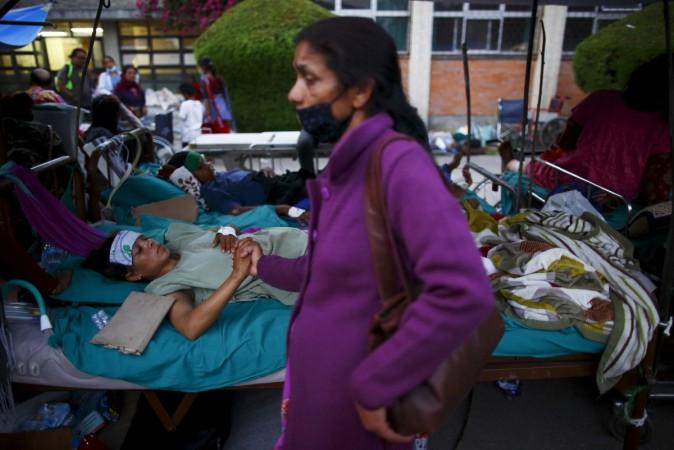
Nearly a year after the April 25 Nepal earthquake in 2015, the World Health Organization (WHO) said Thursday that South-East Asian countries should frame stronger policies as part of disaster preparedness.
Approximately 9,000 people died and another 22,309 were injured in the two earthquakes that struck Nepal's capital city Kathmandu last year.
About 80 percent of the healthcare facilities in the affected areas were either damaged or destroyed in the earthquake, according to a WHO official statement.
"We must learn from the Nepal earthquake, just as we did from the Indian Ocean tsunami. Applying lessons learnt from such events can help strengthen our efforts for preventing emergencies from becoming disasters," Poonam Khetrapal Singh, regional director for WHO South-East Asia, said during a two-day conference -- "Lessons Learnt Conference: Health Sector Response to Nepal Earthquake 2015" -- in Kathmandu.
Singh said stronger policies are needed to ensure that disaster risk reduction measures are implemented, emergency preparedness and response capacities are built at all levels and all cadres of health staff are trained.
The WHO said that robust emergency response plans should be in place at all levels and should be tested periodically for their effectiveness.
These plans, according to the global agency, should ensure resilient and safe hospitals, training of healthcare staff and effectively engage communities to minimise the impact of any emergency.
Singh said that the South-East Asia region is prone to natural calamities and hence the lessons learned from the Nepal earthquake are important for the entire region to prepare better for disasters.
The WHO said the response to the Nepal earthquake was fast, well-coordinated among the health partners, and tailored to the needs of the affected population.
It said the key lessons learned from the earthquake included extending the disaster/emergency preparedness from the national capital to all the districts of the country.
"The preparations that were done in Kathmandu hospitals helped saved many lives. Similar preparations need to be put in place at all other levels too, so that in the event of an emergency, everyone throughout the health system is prepared and knows what to do," Singh said.





!['It's not Mumbai traffic, it's air traffic': Suriya apologises to Mumbai media after paparazzi yelled At Him for making them wait for hours [Watch]](https://data1.ibtimes.co.in/en/full/806234/its-not-mumbai-traffic-its-air-traffic-suriya-apologises-mumbai-media-after-paparazzi.jpg?w=220&h=138)
![Bigg Boss 16-fame Sreejita De and Michael Blohm-Pape exchange wedding vows in dreamy Bengali ceremony [Inside Pics]](https://data1.ibtimes.co.in/en/full/806233/bigg-boss-16-fame-sreejita-de-michael-blohm-pape-exchange-wedding-vows-dreamy-bengali-ceremony.jpg?w=220&h=138)






